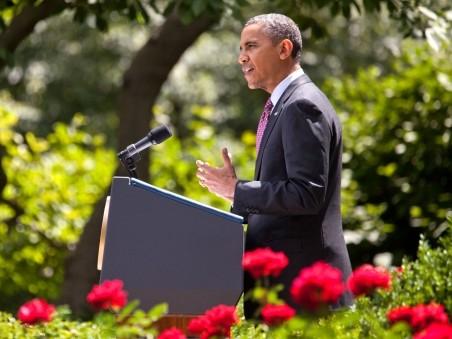Waning public support for the U. S.’s foreign wars, combined with the current congressional impasse over the budget debate, have many Republican legislators in Congress considering putting defense cuts on the table when it comes to debt ceiling negotiations.
With the Aug. 2 Treasury deadline hanging over their heads, the current deadlock over the raising of the debt limit has centered primarily on the issue of tax increases. However, the congressional GOP leadership has more recently recognized a new willingness on the part of rank-and-file legislators to consider cuts to defense, which is in contrast to traditional Republican hawkishness on defense spending.
Senior Republicans say that a deal with congressional Democrats and the White House involving Pentagon cuts would be more palatable than one that includes tax increases.
Republican legislators are opposed to across-the-board cuts to the military budget; they are open to the idea of targeted cuts to specific programs.
House GOP Chief Deputy Whip Peter Roskam (R-Ill.), in an interview with CNN’s Wolf Blitzer in January, outlined the possibility that defense cuts could be an area in which legislators from both parties could find common ground. Roskam voiced his belief that the defense budget would be an area in which some legislators from both sides would seek across-the-board cuts.
“So I think, on balance, there’s going to be a thoughtful group that’s trying to say, ‘Let’s prioritize.’ And my hunch is, when push comes to shove, there’s going to be plenty of Democrats that will join on,” he said.
This new willingness to cut defense spending is also an indicator of the Tea Party influence in the House of Representatives, exemplified by Representative Adam Kinzinger (R-Ill.), currently a reservist captain with prior active duty service in the U.S. Air Force.
Elected to the House of Representatives on a Tea Party platform of smaller government and spending cuts, Kinzinger represents a new brand of Republican legislator no longer willing to treat the defense budget as a sacred cow.
Testifying before the House Armed Services Committee in April, Kinzinger recommended as a cost-cutting measure shelving the development of a new Air Force flight suit known as the Integrated Aircrew Ensemble, a program that has thus far cost $99.4 million over six years.
“I am a strong supporter of the military and ensuring that our military is the best equipped in the world,” Kinzinger said in his testimony. “However, we must make tough decisions with regard to military needs and military wants. Given the difficult budget environment we are in, we must make difficult decisions on how to best prioritize spending the taxpayer’s money.”
Diminishing public support for the U.S.’s military operations abroad also plays a role in the willingness to deal with the defense budget.
Polling suggests that the American public is losing the stomach for the 10-plus years of war. In a recent Pew Research Center/Washington Post poll, 56 percent of respondents were in favor of withdrawing U.S. troops from Afghanistan as soon as possible.
Other data suggests that Americans are more willing to accept cuts to defense rather than cuts to Medicare and Social Security.
The debate over the defense budget began early last year during the showdown over the fiscal year 2011 budget. Neither side has meaningfully attempted to make substantial cuts to the defense budget in order to fix the deficit, with leaders on both sides fearing that deep defense cuts would endanger national security.
Gates’ Proposed Cuts
Rep. Paul Ryan (R-Wis.), chairman of the House Budget Committee, also paid lip service to the idea that defense cuts should be on the table; his final budget proposal, however, failed to deal substantially with the defense budget and instead targeted entitlements, including Medicare.
In early January, Secretary Gates proposed his own cuts in the hopes of forestalling steeper cuts by Congress. Making the assumption that the United States will have largely withdrawn from Afghanistan by 2014, Gates announced a reduction of 27,000 Army troops, 15,000 Marines, and a 10 percent reduction in the defense contractor budget.
In an attempt to deal with Pentagon overhead, he also announced a plan to freeze civilian pay and suggested structural changes and delays in the F-35 Joint Strike Fighter program, including canceling the F-35’s F136 alternative engine.
In addition, Gates recommended canceling the Marine Expedition Fighting Vehicle and decided to put the Marine version of the Joint Strike Fighter, the F-35B, “on probation” for two years.
Gates argued against deeper cuts in the belief that they would jeopardize national security.
Despite these proposed changes, defense and defense-related spending will remain among the largest segments of the federal budget, along with entitlements.
The current fiscal year 2012 Department of Defense budget request calls for a total of $670.9 billion in funding, $553.1 billion of which is allotted for the Pentagon’s “base budget.”
The other $117.8 billion will be dedicated to “overseas contingency operations,” a term that refers to the ongoing military involvement in Iraq, Afghanistan, and Libya.
In total, the proposed fiscal year 2012 defense budget contains a net reduction of $37.3 billion compared to the fiscal year 2011 budget.



